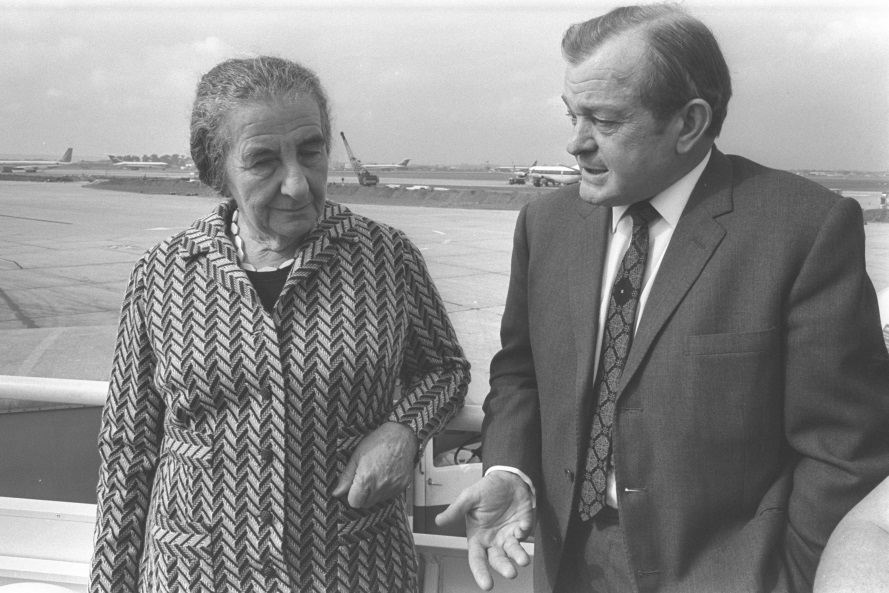Major General Aharon Remez passes away on April 3, 1994 in Jerusalem at the age of seventy-four from illness. Born in 1919 in Tel-Aviv, Remez’s father David was a leader in the Labor movement who served in the First Knesset as Minister of Transportation. Remez attends the Herzliya Gymnasium high school and after graduating, he joins the British Royal Air Force becoming a fighter pilot. During World War II, he logs nearly 800 flight hours. At the conclusion of the war, Remez assists Holocaust survivors immigrate to Israel as part of aliyah-bet (illegal immigration).
Returning to Palestine in February 1947, Remez joins the leadership of the Haganah before being asked by David Ben-Gurion to help create an Air Force for the coming state. Remez focuses his energies on getting equipment and transitioning British air bases for use by the new Israeli Air Force. He assumes the role as Commander in Chief of the Israeli Air Force in July 1948 and serves until he resigns from in December 1950. He chooses to take a leave for study after clashing with Chief of Staff Yigal Yadin over the status of the Air Force within the IDF.
In 1955, he is elected to the Knesset as part of the Mapai list, but resigns in December 1957 after only serving a partial term. He remains a member of Mapai and along with other young members of the party, including Shimon Peres and Moshe Dayan, pushes for reform in the process of choosing individuals for the party’s Knesset list to reflect a more balanced representation.
After a series of brief positions in the public sector, Remez begins working for the Ministry of Foreign Affairs and becomes head of the International Cooperation Department in April 1960. In that role, he oversees several technological and economic cooperation agreements with countries including Turkey, Zanzibar and Peru.
In April 1965, Prime Minister Levi Eshkol appoints Remez as Israel’s Ambassador to Great Britain. During his time as Ambassador, Israel is victorious in the June 1967 Six-Day War, Following the war, Remez has a hand in the drafting of UN Resolution 242, which outlines the concept of “land for peace” and which has been the context and framework for subsequent official Arab-Israeli negotiations.
Returning to Israel in 1970, Remez serves as Chairman of both the Port Authority and Airports Authority, before devoting himself to becoming a sculptor. Aharon Remez is buried with military honors on Mount Herzl in Jerusalem.
The Photo shows Ambassador Remez meeting with Prime Minister Golda Meir at a London airport in September 1969.
Photo Source: Government Press Office of Israel, Moshe Milner









